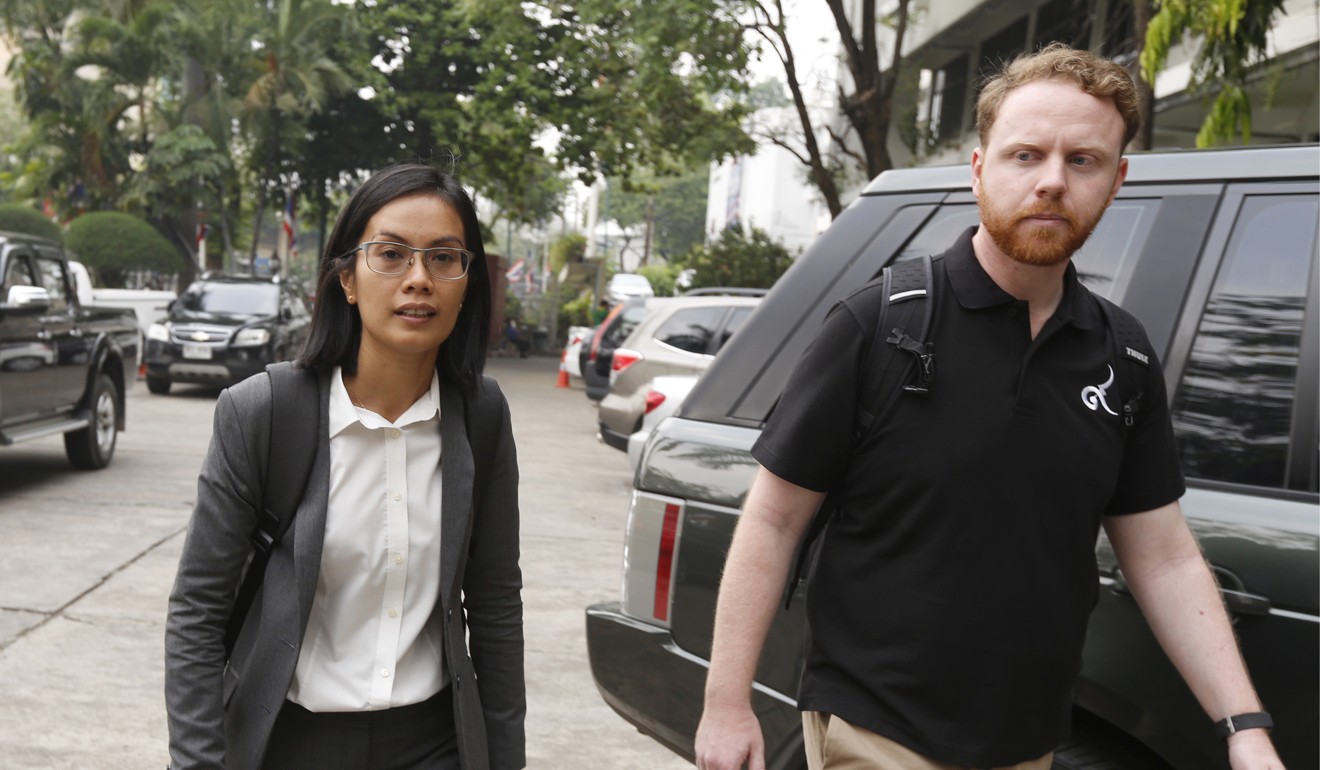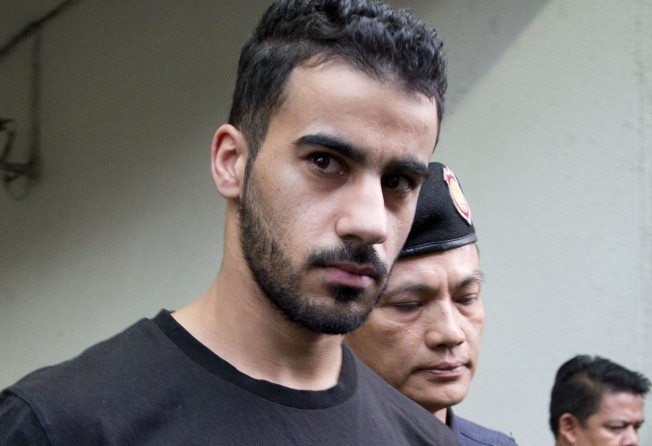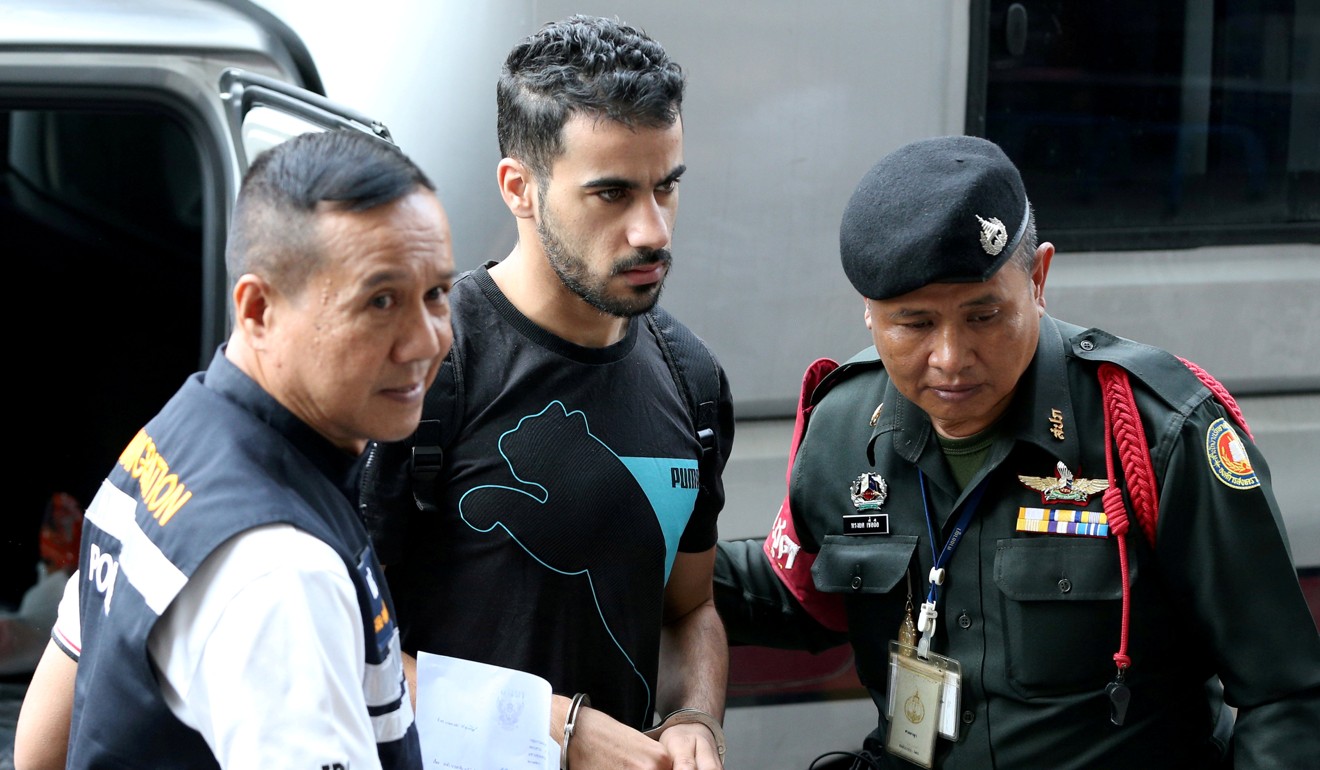
Thailand faces growing pressure to release Bahraini footballer Hakeem al-Araibi
- Hakeem al-Araibi, who was granted refugee status in Australia, has languished in a Thai cell for two months as Thai authorities weigh an extradition request by Bahrain on dubious vandalism charges
- Human rights activists believe al-Araibi is being targeted for political reasons and is at risk of torture or death if he returns to Bahrain

Thailand is under mounting pressure to release a Bahraini refugee who is being detained as Bangkok considers returning him to his homeland, putting to the test a recent pledge to overhaul its harsh asylum policy.
Hakeem al-Araibi, who was granted refugee status in Australia, has languished in a Thai cell for two months as authorities weigh a request by Bahrain for his extradition on dubious vandalism charges.
Human rights activists say al-Araibi, who plays with a semi-professional football club in Melbourne, has been targeted for political reasons and is at risk of torture or death if returned to the Persian Gulf country. Al-Araibi has recounted being tortured by Bahraini authorities over his involvement in protests during the Arab Spring.
Australian Prime Minister Scott Morrison this week confirmed he had written to his Thai counterpart Prayuth Chan-ocha urging for the release of the Melbourne resident. Al-Araibi’s wife has also written to the leaders of Canada and New Zealand pleading for their support to secure his freedom.
The Thai government, which has good relations with Bahrain, has so far resisted calls for his release, insisting the extradition process is a matter for the courts. Bahrain has rejected concerns about al-Araibi being subjected to torture and unjust imprisonment as baseless.
“Thailand should release him immediately,” said Phil Robertson, deputy director for Asia at Human Rights Watch. “Thailand should allow him to return to Australia, and they should say to Bahrain: ‘We recognise Hakeem as a refugee that was recognised under Australia’s convention responsibilities.’”

Bangkok’s next moves are under scrutiny after its head of immigration Surachate Hakparn earlier this month promised Thailand would end a controversial long-standing practice of returning refugees to their country of origin. Thai officials followed up that pledge several days later with a memorandum of understanding on a framework for ending the detention of underage migrants.
Those moves came after the country’s refugee policies were thrust into the international spotlight when Thai authorities intercepted Saudi teen Rahaf Mohammed while she was en route to Australia to claim asylum. Mohammed was ultimately granted asylum by Canada after an attempt by Thai authorities to repatriate her sparked a global outcry.
When contacted for comment, Thailand’s Government Public Relations Department referred the Post to an editorial in the Bangkok Post which welcomed recent signs of a change in policy.
Refugee advocates said they were cautiously hopeful that Thailand would follow up promises to improve conditions for asylum seekers with concrete actions.
“We feel there is a better focus, but we still see that it is not consistent,” said Naiyana Thanawattho, director of Asylum Access Thailand. “It is like case by case.”

Robertson said he was “hoping for the best, and always preparing for the worst”.
Thailand is not a signatory to the UN’s 1951 Refugee Convention and has no legal framework for processing asylum claims. Asylum seekers in the country are at constant risk of deportation and lack work rights and other protections. There are about 100,000 Myanmarese refugees in northern Thailand, according to the UN High Commissioner for Refugees, with another 7,000 of different nationalities in urban areas including Bangkok.
Evan Jones, programme coordinator at the Asia Pacific Refugee Rights Network in Bangkok, said there had been some positive signs from the government in recent years but Al-Araibi’s situation had thrown that into question.
“I think it would be foolish for the Thai government to not – whether it be immediately or in six months’ time – reject the extradition request,” he said.
Robertson said it was incumbent upon the Thai government to allow al-Araibi return home to Australia.
“The reality is that this person is a refugee, they never should have been put into an extradition proceeding to the country they fled from in the first place,” he said. “If that person is sent back, it won’t be an extradition, it’ll be a refoulement. It will be a clear, very major human rights violation that could cost a man his life.”